Manuel Mallia bites the bullet
This has undoubtedly been the biggest issue since mid-November but one which appears to be dropping off the radar following the ousting of Minister Manual Mallia and the demotion of former acting police commissioner Ray Zammit.
Once the Labour Party’s so-called star candidate in the last general election, given his background as a former Nationalist Party supporter, Manuel Mallia had something of a shaky tenure as the police and army minister – riddled as it was by accusations of inappropriate promotions within the ranks of the police and army, numerous official inquiries that he refused to publish and even one notorious incident in which police officers catered for a dinner of the Public Broadcasting Services, for which Dr Mallia had also been responsible.
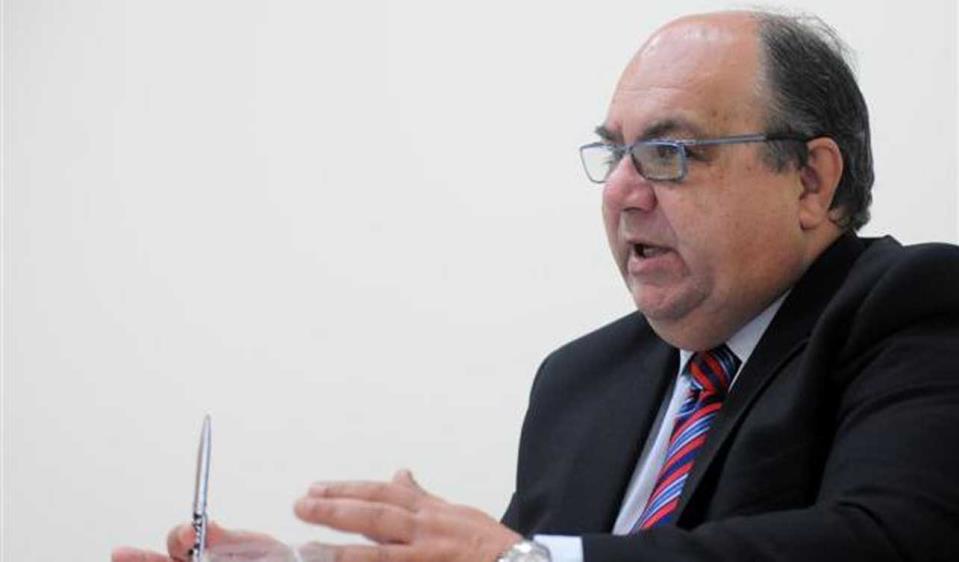
Dr Mallia was dismissed from Cabinet on 9 December after failing to take up the Prime Minister’s offer to resign gracefully after being implicated in a cover-up of his driver’s by now infamous misdeeds on 19 November. Apart from his letter to the Prime Minister on 10 December explaining his absence from a parliamentary debate about the incident, in which he said he was medically indisposed, nothing has been heard from the renowned criminal lawyer and the favourite bête noir of Opposition politicians, since then.
In the wake of the fiasco, Carmelo Abela was appointed Home Affairs Minister, Ray Zammit was reassigned as an assistant commissioner and former ministerial driver Paul Sheehan is facing court proceedings on a range of charges, including a charge of attempted murder.
Teenage tragedy: Lisa Marie Zahra
On 19 March, the body of 15-year-old Lisa Marie Zahra was discovered at the bottom of Dingli Cliffs. The courts are currently determining whether she died in an assisted suicide, helped by her drama teacher Erin Tanti, or whether she had been murdered by Mr Tanti, who had also been found at the bottom of Dingli Cliffs calling for help.
Mr Tanti had been in a sexual relationship with his student, a minor, in the months leading up to her death and has been charged with Miss Zahra’s murder and a raft of other charges.
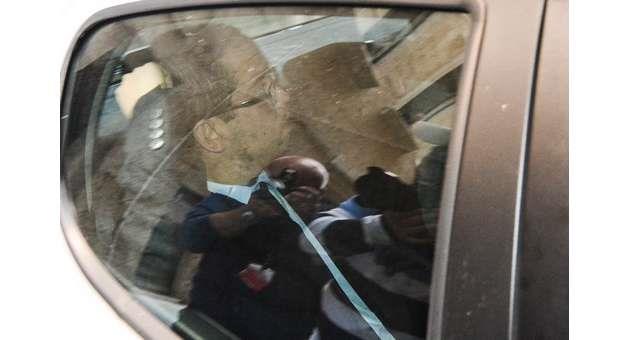
The case undoubtedly touched the nation’s heartstrings and since her death, Lisa Marie’s problems have forced many to re-examine the plight of today’s teenagers and the ramifications of social media use.
Since the death of Miss Zahra, a member of a prominent family of hoteliers, the Lisa Maria Foundation was launched in October by her father Tony Zahra and her uncle Winston J Zahra. The Foundation aims to see that the best practice policies, codes of ethics and behaviour, recruitment procedures and training and support are in place, so that any interaction between professional adults and young people are safe, positive and enriching.
Power station postponed
At the end of September, this newspaper revealed that it would be physically impossible for the government to meet its electoral pledge to have the new and improved gas-fired Delimara power station up and running by the March 2015 deadline.
Although both the Prime Minister and the Energy Minister had tied their political futures to the deadline, no comment had been forthcoming on this newspaper’s revelations until 12 October, when the government finally confirmed the state of affairs with two other newspapers.
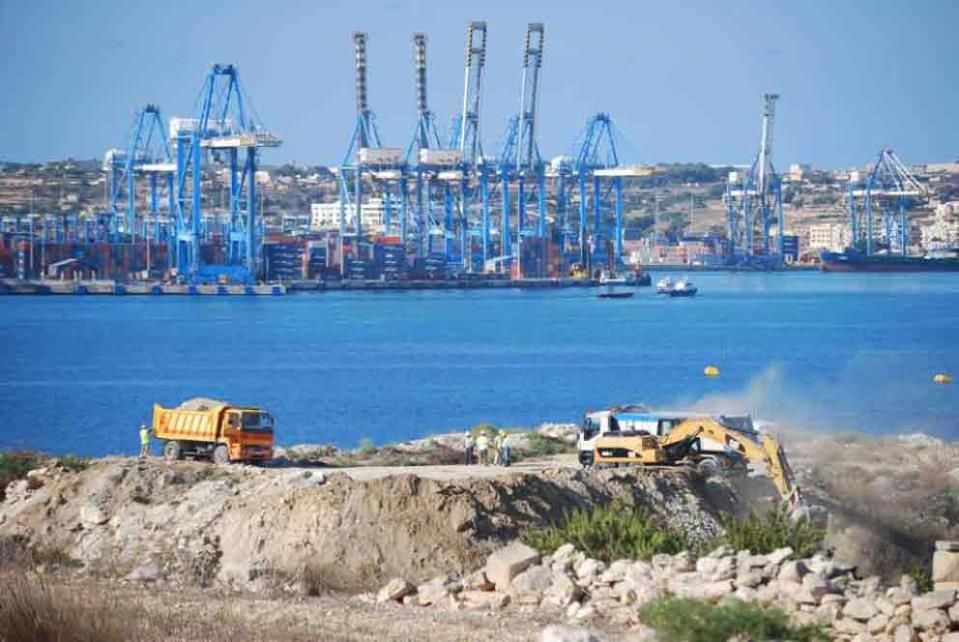
Since then there have been repeated calls for their resignations, as per the government’s pre-election pledges, but both have stuck to their guns, arguing that the pledge was to reduce household utility bills by 25 per cent by last March, which it did, and to implement a 25 per cent reduction in utility bills for businesses by March 2015, which it has said it will do. Details on how those reductions will be effected without the new power station, however, have not been completely forthcoming. Prime Minister Joseph Muscat brushed off criticism over the delay by saying it would only be a question of “a few months here or there”.
In early December, Energy Minister Konrad Mizzi confirmed that the new power station would be up and running by June 2016 – a full 15 months later than promised. In the meantime, the government’s plan for the country’s energy mix remains ambiguous at best.
Reshuffling the deck
On 29 March, former Health Minister Godfrey Farrugia submitted his surprise resignation to the Prime Minister, a move that set several wheels in motion - some earlier than the Prime Minister may have wished.
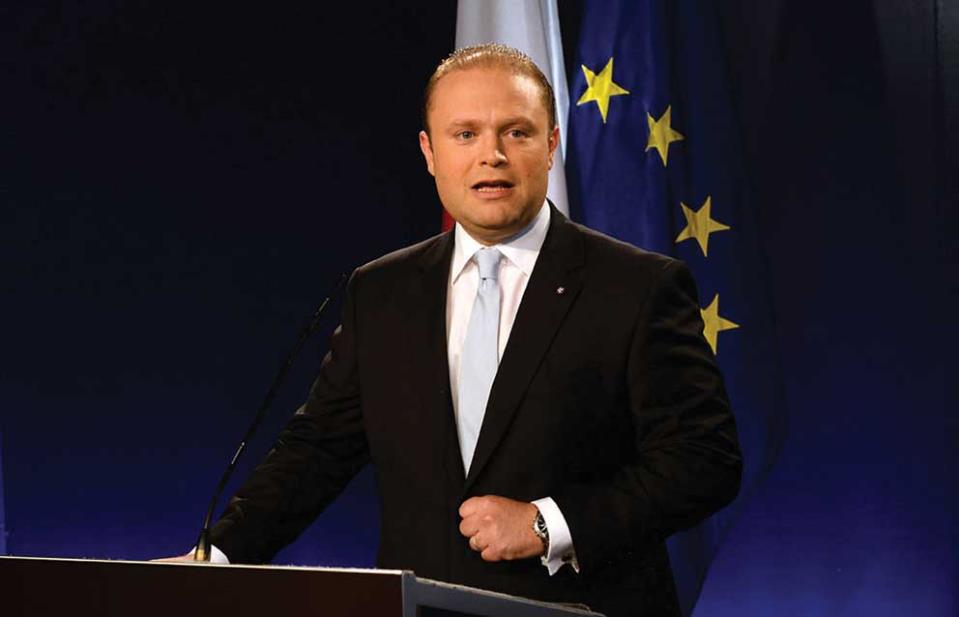
Minister for the Family and Social Solidarity Marie-Louise Coleiro Preca had already been nominated to the Presidency, a post she accepted and assumed last April. She was Malta’s second female President and one of only a handful of female heads of state the world over.
Veteran Labour politician Karmenu Vella was nominated Malta’s European Commissioner and was approved as the Commissioner responsible for Environment, Maritime Affairs and Fisheries in September.
Energy Minister Konrad Mizzi took on Dr Farrugia’s health portfolio, with Chris Fearne as his Parliamentary Secretary for Health, and Gozitan ophthalmologist Franco Mercieca resigned his post as Disability Rights and Active Ageing after a conflict between his professional and political duties. MP Justyne Caruana was appointed in his stead.
In other reshuffles, Michael Falzon was appointed Parliamentary Secretary for Planning and Simplification of Administrative Processes, a position previously held by Michael Farrugia, who filled Mrs Coleiro Preca’s shoes as Family and Social Solidarity Minister. Chris Agius was appointed Parliamentary Secretary for Research, Innovation Youth and Sport, and Jose Herrera saw his portfolio changed from Parliamentary Secretary for Local Government and Culture – which were incorporated into the portfolio of Justice Minister Owen Bonnici – to Parliamentary Secretary for Competitiveness and Economic Growth. Stefan Buontempo was also made Parliamentary Secretary for Local Government.
Citizenship scheme approved by Brussels
After months of haggling, Malta’s much maligned Individual Investor Programme was approved by the European Commission on 29 January after a long drawn-out battle, one which had seen an overwhelming vote against Malta’s plans to offer citizenship against a cash payment in the European Parliament. The programme had also come in for extreme criticism by Europe’s press en masse and many politicians.
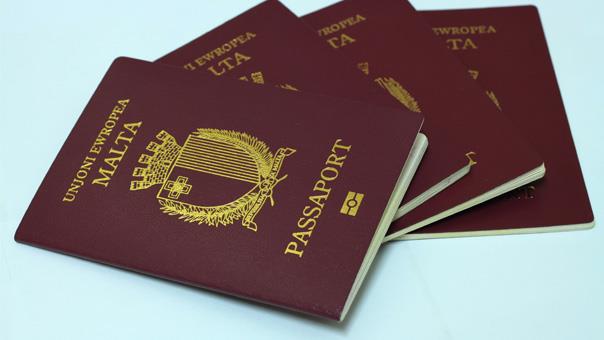
But despite the European Parliament’s vociferous thumbs down to Malta’s plan, the European Commission approved Malta’s citizenship scheme after the Maltese government tweaked the requirements to include a residency clause and a more meaningful investment in the country. The government had previously removed a highly controversial secrecy clause that was meant to have ensured that those acquiring citizenship through the scheme would never have their names published.
The agreement with the European Commission stipulates: “No certificate of naturalisation will be issued unless the applicant provides proof that he/she has resided in Malta for a period of at least 12 months immediately preceding the day of issuing of the certificate of naturalisation”.
But to this day, it is extremely dubious that this clause is being lived up to in full.
So far, the IIP is said to have attracted over 200 applications from high net worth individuals from over 30 countries – in the process raking in over €200 million for the public coffers.
Civil Unions law enacted
In April Malta reached another civil liberties milestone – after the introduction of divorce following a referendum and a break with the Church over jurisdiction on marriage annulment proceedings – with the entry of the country’s civil union law into its statute book after it was passed by Parliament when all government MPs voted in its favour and all Opposition MPs abstained, mostly on account of the Opposition’s dispute over a clause allowing for adoption by gay couples.
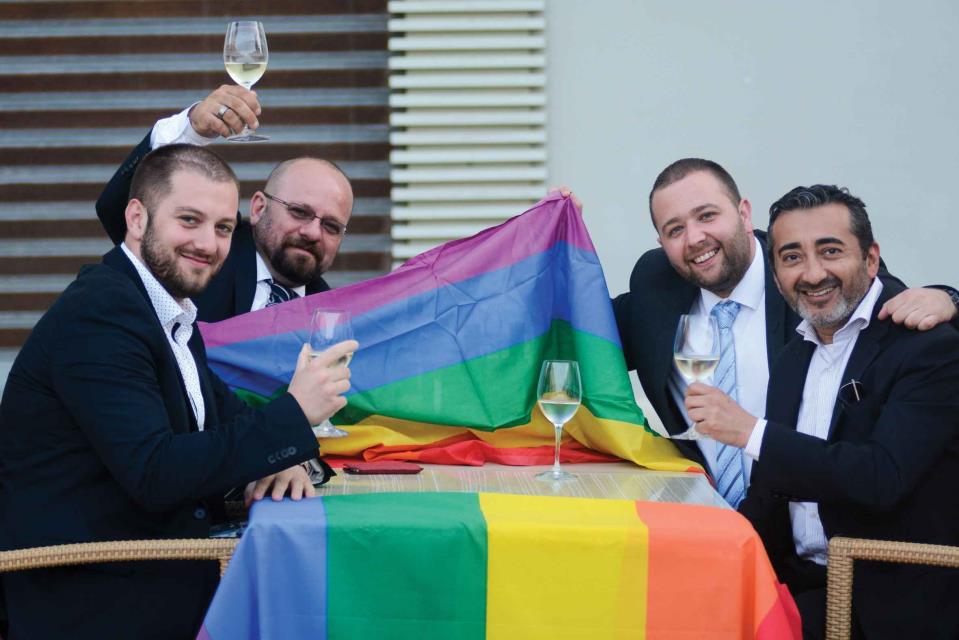
The Bill essentially allows for same sex marriage for Maltese nationals in all but name. The Bill grants same-sex couples the opportunity to enter legally-recognised civil unions, an arrangement which is effectively equivalent to marriage in all but name. But while there was a political consensus on introducing civil unions, this was lacking on another, more controversial, provision of the law: allowing same-sex couples to jointly apply to adopt children.
Multiple national celebrations
2014 was also a year that saw multiple national celebrations. Over this last year, Malta celebrated 50 years of Independence, 40 years since it became a Republic, 35 years since Freedom Day and 10 years since the country became a member of the European Union.
The most memorable, and some would say rightly so, was Malta’s 50th anniversary of its Independence from the United Kingdom on 21 September 1964.
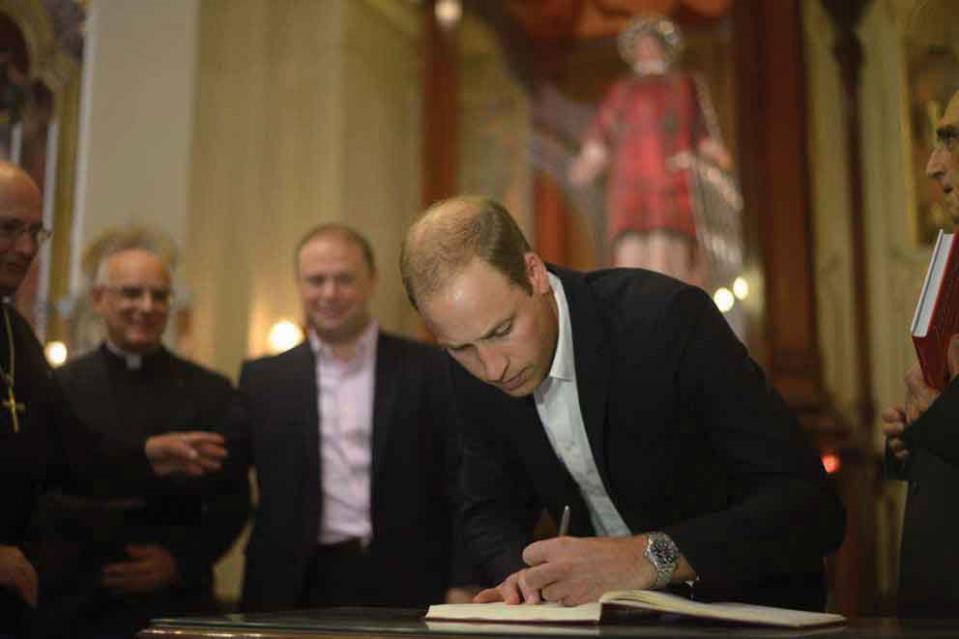
The occasion was made all the more memorable with the presence of Prince William for the celebrations last September. Prince William had replaced his pregnant wife Kate, who had been scheduled to represent the UK at the celebration, in the 11th hour when she suffered a severe bout of morning sickness.
At the celebration, Prime Minister Joseph Muscat remarked, “I must confess I have rarely been as proud as I am today, in witnessing one people, united not only in celebrating past accomplishments, but, most importantly, united in the resolve to achieve even greater success for our homeland in the future.”
President Coleiro Preca had added, “The story of Malta’s Independence is a kaleidoscope of events which started long before 1964. May the legacy that laid the foundations for the birth of a new nation 50 years ago, continue to inspire us all today, to never give up on any impending challenges which may loom on the horizon.”
Maltese abducted in Libya
Last July, Maltese national Martin Galea, who was an oil field employee working in Libya, was abducted by Libyan militia in the latest and still ongoing surge of violence in the war- and militia-torn country. The news came just as the Maltese government had insisted that all Maltese in Libya were safe.
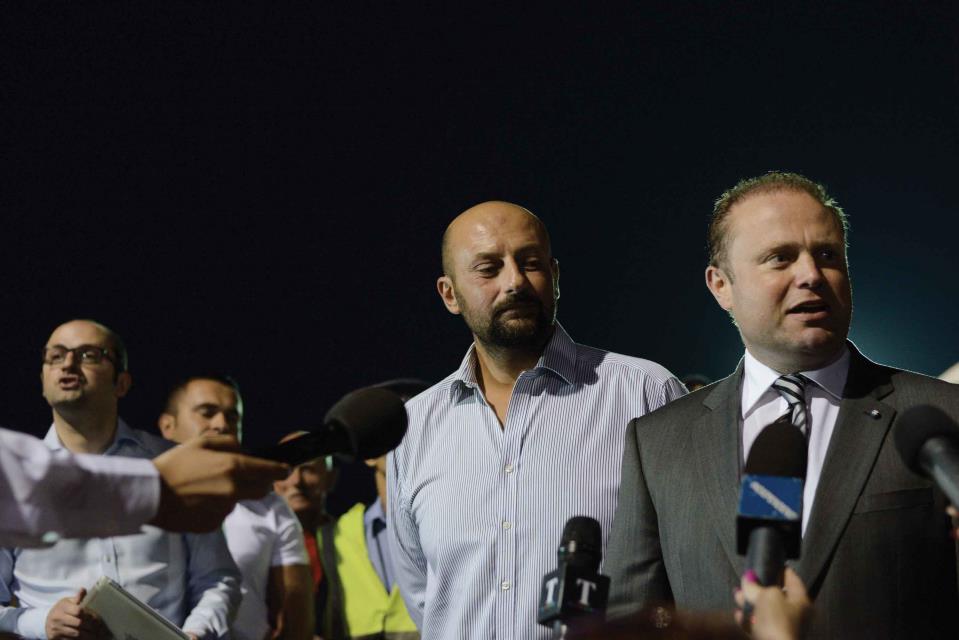
The government had at first denied that Mr Galea had been abducted but later changed it version of events in the wake of an extensive interview with this paper, during which Mr Galea, a retired Armed Forces of Malta captain, detailed his horrific ordeal he suffered during his 11 days in captivity.
In an exclusive interview published in The Malta Independent, Mr Galea recounted how he had been threatened with his life, how one of his captors had hit him on the head with a wooden knife handle and how he was also forced to harm himself with a piece of wood that had rusty nails in it and had once formed part of a clothes hanger in the cell in which he was kept. Journalists from this newsroom who interviewed Mr Martin at his home were shown the marks on his head and the palm of his hand, as well as a cut on his wrist he suffered when he was tightly handcuffed. For some reason these were not included in the medical report.
He also contradicted claims that he was captured by “friendly militia” and was held “for his own safety”, and insisted that friendly militia would not have kidnapped him, robbed him of all his belongings – including his wedding ring, starved him for four days, used violence against him and plotted his execution.
Mr Galea was eventually returned safely to Malta.
Archbishop calls it a day
Following months of speculation, Archbishop Paul Cremona resigned as the head of Malta’s Catholic Church on 18 October.
The move, however, was far from a sudden one. As Archbishop Emeritus Paul Cremona said on the day, he had the “first inkling” that it was time to step down from his position two years ago when he was suffering from exhaustion.
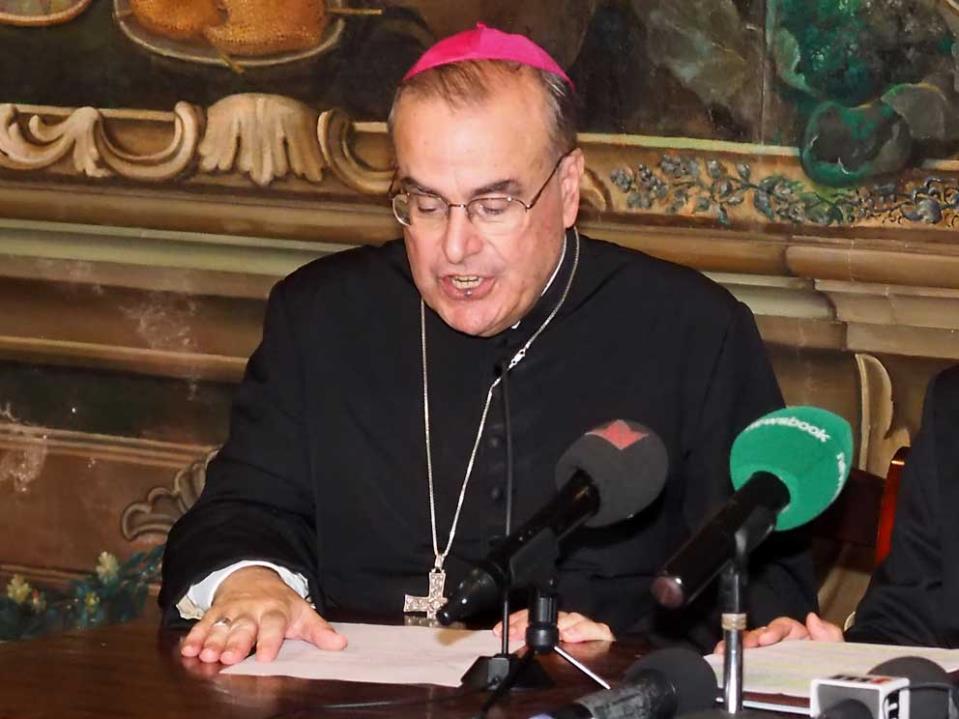
“Two years ago I succumbed to exhaustion. I had to go to Gozo to rest a bit because I was exhausted. The first inkling was back then,” he said, during a press conference announcing his resignation.
"I am at peace with God for taking the right decision. It has been an honour to lead the Church for almost eight years. I thank God for the good I may have done, I thank him for sending people to help me. I have no rancour for anyone in my heart. I am at the service of my successor.”
“I have tried my best to fulfil my obligations but it was often an effort. I am sure that my successor will do all he can for the Church in Malta,” the Archbishop Emeritus said. He said that questions about his leadership in the media might have “accelerated” the resignation process.
“I took the office under instruction from the Pope directly. I love being with people and I tried my best,” he said.
MEP election
The May 2014 election for members of the European Parliament was, officially speaking, a draw between the two main political parties, and with Green party Alternattiva Demokratika failing once again in its most potentially promising electoral exercise.
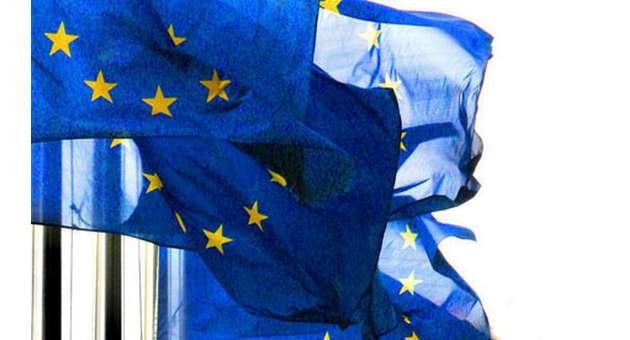
The Labour and Nationalist parties both garnered three seats in the EU’s representative body, with the PN recouping its previous one seat deficit in the previous legislature, in which Labour had four seats and the PN two.
Former Prime Minister Alfred Sant was elected for Labour along with Miriam Dalli and Marlene Mizzi, while Roberta Metsola, David Casa and Therese Comodini Cachia were elected for the Nationalist Party.